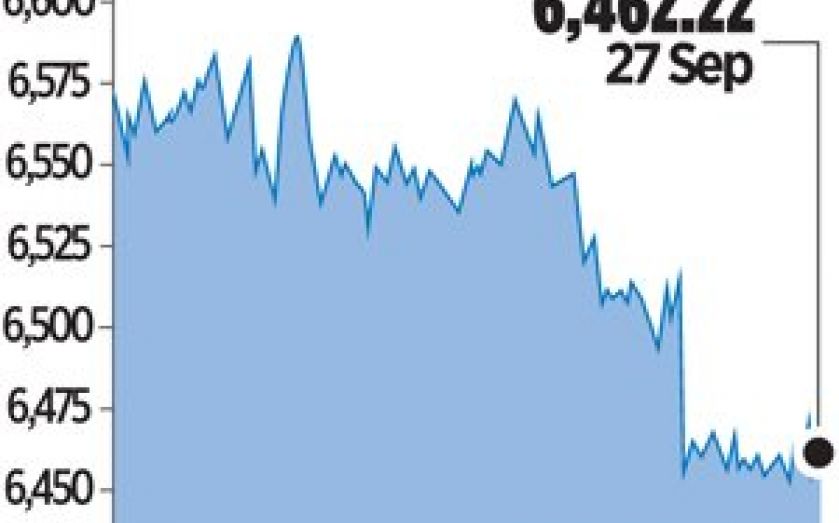London Report: FTSE is knocked by jitters in US, China and Italy

BRITAIN’S top share index fell yesterday, with miners hit by weak data from top metals consumer China and with political jitters in Italy and the United States hurting broad investor sentiment.
Fresnillo and Glencore Xstrata lost over two per cent after Chinese data unexpectedly pointed to a near-stagnation of private sector factory activity.
Yesterday’s market retreat was broad, however, with around 85 per cent of blue-chip stocks in the red. The FTSE 100 closed down 50.44 points, or 0.7 per cent, at 6,462.22 points, continuing its retreat after breaking below a key technical support at the 50-day moving average on Friday.
“It’s very difficult if you are managing money to know whether you should be jumping out or holding fire,” said Mike Franklin, head of investment strategy at Beaufort Securities.
“There is potential downside on the FTSE 100 of about four per cent from Friday’s close, purely on the technicals.”
The sudden departure of five Italian centre-right ministers over the weekend left the government only formally in place, rattling markets and raising the possibility of new elections.
Chances looked slim that Republicans and Democrats will strike a deal on funding the federal government before the fiscal year ends at midnight last night, raising the prospect of a gradual government shutdown. Politicians need to reach another deal, on raising the debt ceiling, later this month or the United States will default on some obligations.
“The biggest concern is the potential knock on it might have on the debt ceiling negotiations as well. If the government is in shutdown mode that probably doesn’t help the chances of that being sorted out,” said Stephen Walker, head of equities research and market strategy at Ashcourt Rowan.
“Short term, there is certainly the potential that things get a little bit worse … so if I was sitting on the sidelines in cash, I would be a bit reluctant to launch into the market.”
Longer term, strategists at JP Morgan said that companies exposed to the recovering British economy should outperform, while the broader FTSE 100 may lag its European peers.
“UK has a big chunk in the telecoms, utilities and energy and we don’t like those three sectors, we think they are not likely to grow,” said Emmanuel Cau, equity strategist at JP Morgan.